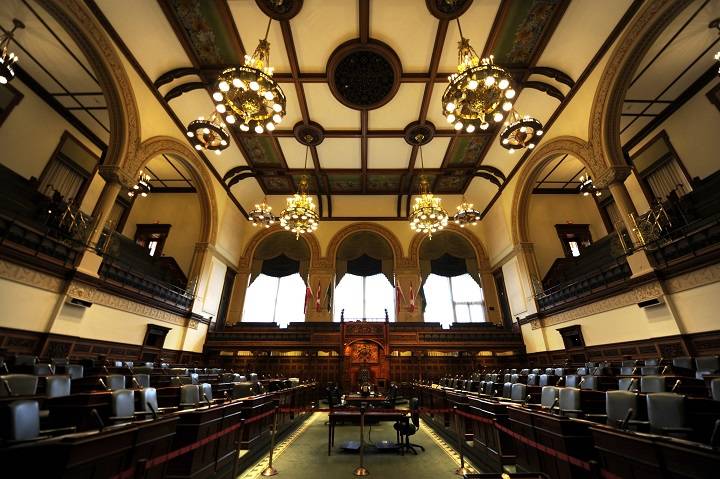TORONTO – Ontario politicians now have one month left to get in a last kick at the fundraising can before they are banned from attending such events.

Legislation that dramatically alters the political fundraising landscape in Ontario unanimously passed Thursday, including banning corporate and union donations and lowering individual donation limits.
Though all parties voted in favour of it, the leaders of the Progressive Conservatives and the NDP were quick to point out that the Liberals introduced the bill in the first place amid a cash-for-access scandal.
READ MORE: Ontario’s chief electoral officer raises concerns about proposed MPP fundraiser ban
The governing party was harshly criticized over fundraising events that saw cabinet ministers attend private, high-priced functions with stakeholders.
Under the new law, which comes into effect Jan. 1, members of provincial parliament, candidates, party leaders, nomination contestants, leadership contestants, chiefs of staff, premier’s staff and other party leaders’ staff are all banned from attending fundraisers.
Politicians could still, however, attend events where the ticket price only recovers the cost of hosting it, and solicit funds by mail, phone or email.

Get daily National news
That strikes NDP Leader Andrea Horwath as a significant loophole.
READ MORE: Ontario government one step closer to banning politicians from fundraising
“You ban MPPs, cabinet ministers, from doing that direct ask, if you will, at a fundraiser…but you don’t stop them from picking up the phone and having the exact same conversation,” she said.
Attorney General Yasir Naqvi was not able to clearly explain Thursday the difference between soliciting donations in person and over the phone, and why one would be banned but the other accepted.
“Unless you’re suggesting that there should be no fundraising and political parties can only fund elections by getting money through public subsidy, that’s a whole different question,” he said. “Of course, there has to be some mechanism to raise funds. The new world, in my view, what that will look like is smaller donations from large groups of people just like the federal parties do.”
When asked if banning politicians from fundraising over the phone was just not enforceable, he said, “I’m not suggesting that, but I’m saying that is a big part of it.”
READ MORE: Ontario PCs say Liberals continuing to fundraise in secret
Progressive Conservative Leader Patrick Brown said on the whole it was a good bill bringing much-needed reforms, but banning politicians from fundraisers was overkill.
He will still be hitting up donors at fundraisers for the last few weeks that they’re legal, he said.
“I don’t apologize for being a worker bee,” Brown said.
Ontario’s chief electoral officer has raised concerns about the ban on politicians attending fundraisers, saying his office was not consulted on the rules before they were publicly announced, and it’s clear they will require a “significant amount of work” to administer.
READ MORE: Ontario MPP fundraising ban to include candidates, nomination contestants
And he didn’t find any other jurisdictions with similar rules in any other North American jurisdiction.
Under the law, political parties will be given a per-vote subsidy to offset the loss of corporate and union donations. Individuals will be allowed to donate a maximum of $3,600 in an election year, down from $33,250.
Restrictions are also now placed on the amounts that third parties can spend on political advertising during elections and the six-month period before scheduled general election periods, as well as limits to the political advertising spending of registered political parties in the six months before an election.







Comments